What is iGaming? Types, History, Industry, & Future 2026
- Author:Palak Madan
- Read Time:15 min
- Published:
- Last Update:February 19th, 2026

This guide covers everything you need to know about what is iGaming, including online sports betting and casino market insights, history, popular games, obstacles, regulatory landscape, and more.
Alex ran a mid-sized casino and watched helplessly as younger competitors dominated the digital space.
He struggled for months but one day…
…one strategic pivot changed everything- embracing iGaming.
The online platform wasn’t just another sales channel- it was a gateway to global markets, 24/7 operations, and dramatically lower overhead.
Alex transformed his traditional business model by understanding digital player behaviors and creating engaging online experiences.
Want the same success trajectory as Alex’s?
Here’s a guide to mastering iGaming that goes beyond the basics.
Let’s dive in!
What Does iGaming Mean?
iGaming refers to any form of wagering that takes place online through digital platforms like websites and mobile applications.
It includes popular casino games, sports betting, poker, virtual slot machines, live dealer games, bingo, esports betting, and more.
Instead of going to a casino, players can gamble from the comfort of their homes or anywhere with internet access.
These games are easy to find and play through websites and apps.
As more people use smartphones and the internet gets faster, online gaming has become increasingly popular worldwide.
Different countries have different regulations with some allowing iGaming freely while others maintaining strict regulations or complete bans.
By the end of 2024, the market size of the iGaming industry is estimated to reach USD 93.26 billion. It is expected to reach USD 153.21 billion by 2029.
As the technology improves, the iGaming industry continues to grow, introducing new ways to gamble online with more exciting and interactive experiences.
The Most Popular Types Of iGaming You Should Know
1) Online casinos
They offer a wide range of games you’d normally find in a physical casino but with the convenience of playing from home or anywhere.
Players can enjoy classic games like blackjack, roulette, and baccarat with realistic graphics and sounds.
iGaming software has popular live dealer casino games, where real people deal with cards, making the experience feel more authentic.
For operators, the online casino industry represents a high-potential market with diverse revenue streams.
Successful platforms require a strong game portfolio, including both classic and innovative titles from the right iGaming software providers.
2) Sports betting
Online sports betting allows players to wager on global sporting events through online sportsbook platforms.
The sports betting market is complex, requiring deep knowledge and advanced technology.
To be successful, you need to create a platform that covers sports from around the world, with constantly updating odds and betting options.
This means partnering with multiple data providers who can give you live information about sporting events.
Operators must think about creating multiple experiences for different types of sports fans, from casual viewers to serious bettors.
3) Online slots
Online slots are digital casino games where players spin virtual reels to match symbols hoping to win money by creating winning combinations across pay lines.
To create a successful slot platform, you need to work with the best game developers in the iGaming industry.
This means having a huge variety of games that appeal to different types of players.
Some players love classic fruit machine-style slots, while others want complex games with storylines and amazing graphics.
The most successful operators pay close attention to return-to-player rates– basically, how much money players can get back over time.
4) Online poker
Online poker is a digital card game in which players compete against each other and bet money on poker hands through online poker platforms and tournaments.
Starting an online poker business requires advanced computer systems that ensure fair play and prevent cheating.
You’ll want to create tournament structures that appeal to different segments of players including casual and high rollers.
5) eSports
eSports is competitive video gaming where players battle in organized tournaments for money and fame.
The best esports platforms offer detailed statistical data, live streaming of matches, and marketing approaches that directly speak to younger and tech-savvy audiences.
Success in esports betting means constantly staying ahead of trends, understanding gaming communities, and creating experiences that feel authentic to gamers.
A Brief History Of iGaming
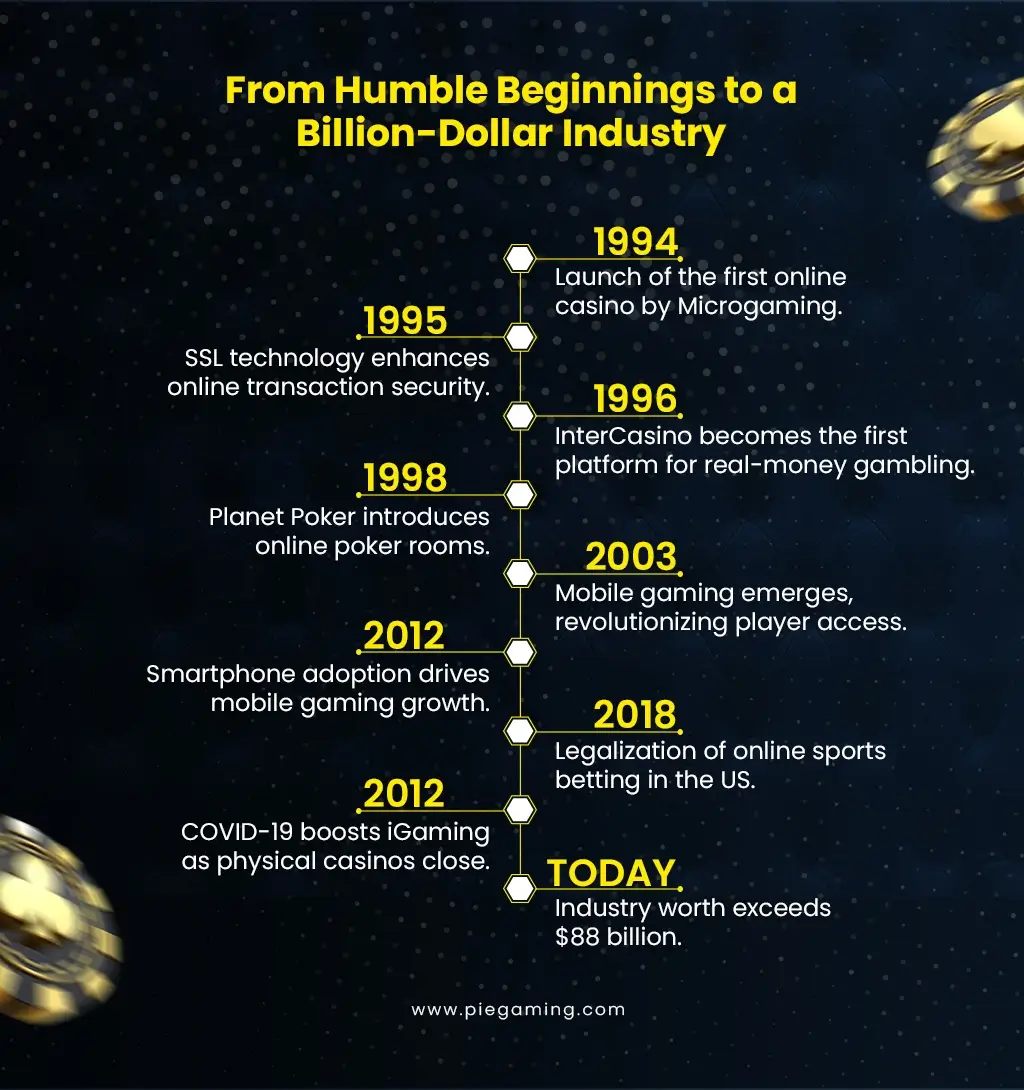
History Of iGaming
Two decades ago, placing a bet meant visiting a casino. Today, millions of players worldwide have virtual casinos in their pockets. Let’s see how the industry has come a long way through this brief history of iGaming.
I- From Humble Beginning To A Million-Dollar Industry
It all started in year 1994 with the launch of the first online casino. Fast forward to today, the iGaming industry is worth over $88 billion, reflecting a remarkable transformation.
II- The Wildest Era Of Early Online Betting and Casinos
1994– Microgaming created the first iGaming website after Antigua and Barbuda made online casinos legal.
1996– InterCasino opens, becoming one of the first sites where people could gamble with real money.
1998– Planet Poker launches the first online poker room, giving players a new way to play poker on the Internet.
2003– 888.com becomes the first licensed online casino in the US, making over $2 billion.
III- Technological Breakthrough That Transformed The Industry
1995– Introduction Of Secure Sockets Layer (SSL) technology enhances security for online transactions. This paved the way for trust in player habits.
2003– The advent of mobile gaming begins to take place. This led to a significant shift in player habits.
2012– Online gaming becomes huge on phones as more people get smartphones letting them play anywhere.
IV- Major Scandal And Controversies That Shaped Regulations
2006- The UIGEA was enacted in the US, complicating the landscape for iGaming and leading to many operators exiting the market.
2011– “Black Friday” sees major poker sites shut down by the FBI, highlighting the need for regulatory clarity and player protection.
V- Major Innovations Like Live Dealers And Mobile Gaming
2013– New Jersey, Delaware, and Nevada legalize iGaming.
2013– New Jersey becomes one of the first states to legalize iGaming in the US. This introduced live dealer games that replicate the real-life casino experience.
2018– US allows to make online sports betting legal.
2020– The COVID-19 pandemic drove growth in iGaming, with many players turning to iGaming software as physical casinos close.
| Breaking The Monotony- Story Time💡
In 1992, a daring Greek immigrant, Archie Karas, landed in Las Vegas with just $50 in his pocket and a dream. Through poker and Dice, Archie turned $50 into $40 million, becoming a casino legend. But Lady Luck is a fickle mistress – within months, he lost it all. By 1995, he had gone from being one of the richest gamblers to broke once again. Moral of the story? Fortune’s ladder has a thousand steps to climb, but only one to fall. So, be a responsible gambler! |
The Current State Of The iGaming Industry
The online wagering (iGaming) market is getting bigger fast. In 2023, it was worth $85.62 billion, growing by 18.92% from the year before.
Experts think it will reach $97 billion in 2024 and grow to $125.6 billion by 2027. Some even say it could hit $583.69 billion by 2030, though that’s a long way off to be sure.
Several big changes are helping this growth. First, more people can now use the internet- about 64.6% of people worldwide are online.
This means more people can try iGaming, especially in countries where internet access is new to many.
Additionally, more governments are making iGaming legal and creating rules to make it safe.
New technology is making online wagering better too. Players can now play with real dealers through video streaming, making it feel like they are in a real casino.
Blockchain technology helps make payment safer and gives players new ways to put money in and take it out. iGaming companies keep adding new features to make their website more fun and trustworthy.
People’s views about iGaming are changing too. Many now see it as just another way to have fun, like playing mobile games or following fantasy sports.
This new way of thinking, better technology, and clearer rules mean more people are likely to try iGaming.
In a nutshell – the iGaming industry offers an abundant opportunities for new operators to make their mark and existing ones to expand their venture.
Read More:- How To Start A Sportsbook: A Complete Guide
Major Obstacles Hindering iGaming Growth
Growing an iGaming business isn’t easy. Several major problems keep popping up, and they’re giving operators real headaches. Let’s take a look at them.
1) Following The Rules
Running an iGaming platform is like figuring out a complex maze of rules that are different in every country.
For example, what’s perfectly fine in Malta might be completely banned in the US, while being partly allowed in the UK with special conditions.
Companies have to spend millions on legal teams and special iGaming software just to comply with all the regulations.
Getting these rules wrong isn’t an option; fines can hit millions of dollars and companies can lose the right to operate overnight.
That’s why many iGaming software have dedicated teams watching out for new rules making sure everything stays legal.
2) Tricky Advertising
Advertising wagering-related content is like walking on eggshells.
Most TV channels won’t show these ads during the day, social media platforms have strict limits and some countries ban such ads completely.
This has forced companies to get creative. They are now working with game influencers who stream their play sessions. Some brands resort to surrogate advertising too.
This way they are building communities on social media without directly promoting staking and using targeted email campaigns to reach existing players.
But even these methods have to be fool-proof, i.e.:
- No targeting young people
- No making staking look like a way to make money
- No pushing people to bet more than they can afford.
3) Keeping Player Information Safe
Online wagering sites hold tons of sensitive information
We are talking about players’ full names, addresses, bank details, and even copies of their IDs.
Protecting this data isn’t just about having strong passwords- websites need encryption, constant security monitoring, and regular system checks.
They also need to have backup plans if something goes wrong. One data breach could mean millions in fines and lost trust from players.
That’s why iGaming sites often hire top cybersecurity experts and use the same security setup as major banks.
4) Making Payments Work Smoothly
When players want to deposit or withdraw money, they expect it to be as quick and easy as using Amazon.
But iGaming sites have to do a lot more checking.
First, they need to verify every player’s identity- that means checking IDs, proof of address, and sometimes even source of funds.
This process can take days and often frustrates players who want to start playing right away.
Then there’s the challenge of processing payments safely. Integration of Payment solutions with iGaming platforms is not as simple as it is with any other platform.
Sites need to work with multiple payment providers (cards, e-wallets, and bank transfers) while watching for signs of fraud and money laundering. Here’s the list of top iGaming payment solutions providers for you.
They also need backup systems in case one payment method goes down.
5) Protecting Players
Responsible wagering isn’t just about having a small “gamble responsibly” message anymore.
Modern iGaming software needs detailed systems to help prevent addiction. They track playing patterns to spot signs of problems early.
Players need easy ways to set their own limits- like how much they can deposit each month or how long they can play each day.
These websites also need cool-off features where players can block themselves from wagering for a while and these blocks need to be rock-solid.
All these features need careful programming to work smoothly without making regular players feel restricted.
The Regulatory Landscape of iGaming
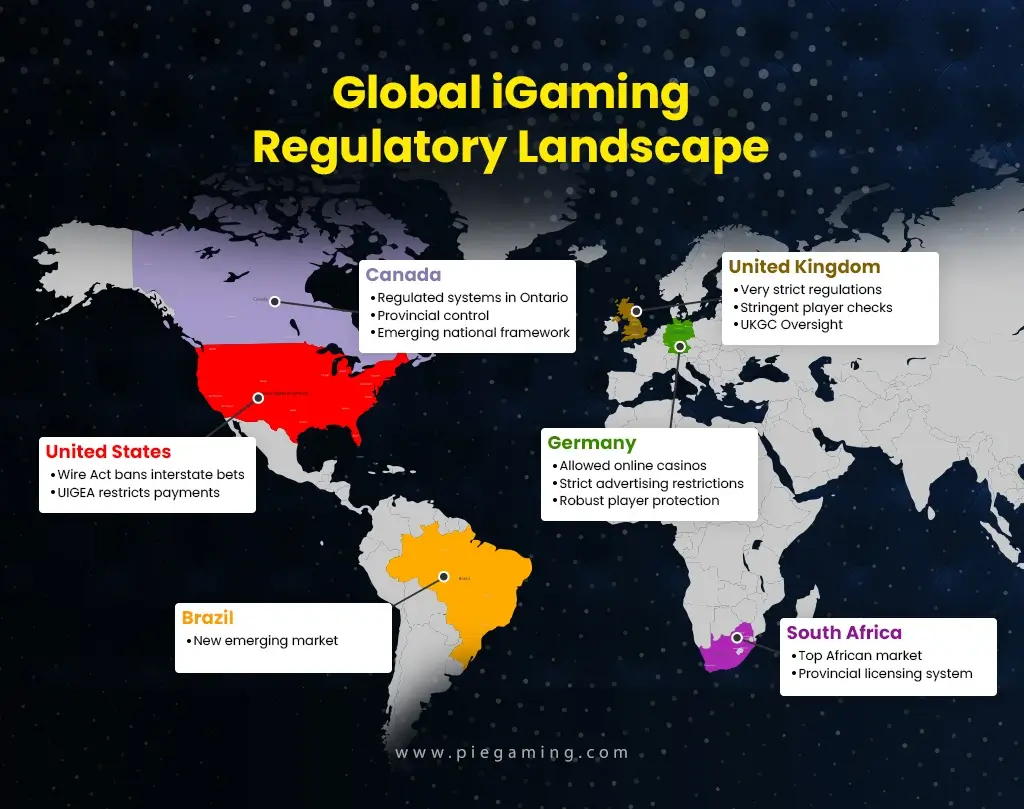
State Of The iGaming Industry
The iGaming industry operates in a complex regulatory environment and it varies worldwide. Let’s have a look at how different regions approach these regulations:
In Europe, there is no single set of rules for iGaming.
The UK leads with one of the world’s strictest systems through its Gambling Commission (UKGC), enforcing the Gambling Act 2005.
This means starting a sports betting business in the UK isn’t an easy deal.
In Europe, the UK set high standards for iGaming companies.
They must thoroughly check who their players are, fight against money laundering, and help prevent staking addiction.
Germany has just started allowing online casinos and betting but with strict rules about advertising and protecting players.
Malta makes it easy for iGaming companies to operate there, which is why many choose to set up shop on the island.
The United States has a patchwork of rules. While there’s no national law completely banning iGaming, there are some federal laws that impact it.
The Wire Act stops betting across state lines and UIGEA controls money moving through illegal betting sites.
However, states can make their own rules, which is why places like New Jersey, Pennsylvania, and Michigan now have legal iGaming.
In Canada, each province controls its betting market, with Ontario recently launching its own regulated system.
Africa is seeing big growth in iGaming as more people get smartphones and internet access.
Online casinos in South Africa lead the way with regulated wagering- each province can give out licenses under a national framework.
New countries keep joining the regulated betting space, like Brazil. This means operators have to keep up with different rules in different places to stay legal and keep their players safe.
The important thing to remember is that iGaming rules can be very different depending on where you are in the world. These rules keep changing as the industry grows.
The Future of iGaming
The online gaming industry is undergoing a major transformation. Let’s deep dive into each aspect that’s shaping its future.
1) Mobile Gaming Revolution
The boom of mobile gaming is changing how people play.
a) Smart devices are letting players enjoy complex games that were once only possible on computers. For example, modern phones can now run full casino-like experiences with live dealers and 3D graphics.
b) iGaming operators are majorly investing in mobile-first approaches because:
- Over 80% of internet users now own smartphones
- Players prefer the convenience of gaming on-the-go
- Mobile payments are becoming more secure and easier to use
The shift to mobile has created new opportunities for unique game formats.
2) Virtual And Augmented Reality Integration
VR and AR are not just adding to the games- they are completely changing how we think about online gaming.
a) Virtual reality in iGaming
- Players can walk through casinos that feel incredibly real
- Players sit at the poker tables with players around the world, seeing their reactions and movements.
- Online sports betting allows you to watch games from any angle in the stadium.
b) Augmented reality in iGaming
- Turning your living room into a poker room with virtual cards and chips
- Overlay betting odds and statistics while watching live sports
- Creating mixed reality experiences where digital games blend with the real world.
The technology is getting cheaper and more accessible every year.
Soon, putting on a VR headset to play poker might feel as natural as using a smartphone today.
3) Artificial Intelligence Revolution
AI in gaming industry is becoming the invisible force that makes games smarter.
a) Personalization
- Games that learn your playing style and adjust difficulty automatically.
- Customized online casino bonuses and promotions in iGaming based on your performance.
- AI-powered game recommendations that understand what you enjoy.
b) Security and fair-play
- AI systems that can spot cheating or suspicious behavior instantly
- Algorithms that ensure random number generation is truly random
- Fraud detection is always learning new scam patterns
4) Blockchain And Cryptocurrency Integration
This technology is making iGaming more transparent and secure.
Benefits of blockchain in iGaming:
- Instant withdrawals and deposits
- Complete transparency in game outcomes
- Provably fair gaming systems
- Anonymous gaming options
- Smart contracts that automatically pay out winnings
The rise of crypto iGaming software in iGaming isn’t just about Bitcoin anymore.
New gaming-specific tokens are emerging, creating an entire ecosystem where players can earn, trade, and spend within their favorite games.
5) Regulatory Evolution
The regulatory landscape is getting more sophisticated:
Main developments:
- More countries are creating specific online gaming laws
- Player protection is becoming stronger
- Anti-money laundering measures are getting stricter
- Responsible gaming tools are becoming mandatory
This maturation of regulations is good news for players. It means safer gaming environments, better protection for money, and more trustworthy operators.
Final Thoughts
Online wagering has come a long way, transforming from a niche activity to a global phenomenon.
For iGaming operators, success is about more than just offering games.
It’s about creating seamless, engaging iGaming software that prioritizes user experience, security, and trust.
The most effective operators stay ahead by embracing advanced technologies, understanding player preferences, and maintaining strict regulatory compliance.
As the iGaming market continues to evolve, those who innovate, adapt, and put players first will lead the market.

Build Your iGaming Business With PieGaming
FAQ
-
Is iGaming legal?
Online wagering laws vary from place to place. Some areas allow it, and others do not. In the U.S., a few states, like New Jersey, allow it, while other regions have different rules.
-
What are iGaming companies?
These are businesses that create websites and apps where people can gamble online. They follow strict rules to make sure everything is fair and legal.
-
What is the meaning of iGaming?
iGaming is all about betting, wagering and playing casinos on the internet. It includes online casino games, poker, and sports betting that you can play on your phone or computer.
-
What are the most common payment methods in the iGaming sector?
People can pay for iGaming using credit cards, digital wallets like PayPal, bank transfers, and even cryptocurrencies. There are lots of ways to put money into your account and cash out winnings.

Palak Madan is a enthusiastic writer at PieGaming. With over 2+years of experience crafting engaging content and a strong literature background, Palak brings a unique perspective to the world of words. Her ability to blend creativity with strategic thinking has made her a sought-after content creator. She's eager to dive deep into the intricacies of iGaming software, uncovering the stories behind the technology and translating complex features into compelling narratives.
-
 Monika Gola November 17, 2025
Monika Gola November 17, 2025To obtain the Anjouan Gaming License, applicants must collect and submit all the important documents. Learn the process of obtaining Anjouan iGaming license.
-
 Monika Gola September 23, 2025
Monika Gola September 23, 2025This blog covers everything from success keys to case studies of successful Asian iGaming operators to help start your dream business. Whether…
-
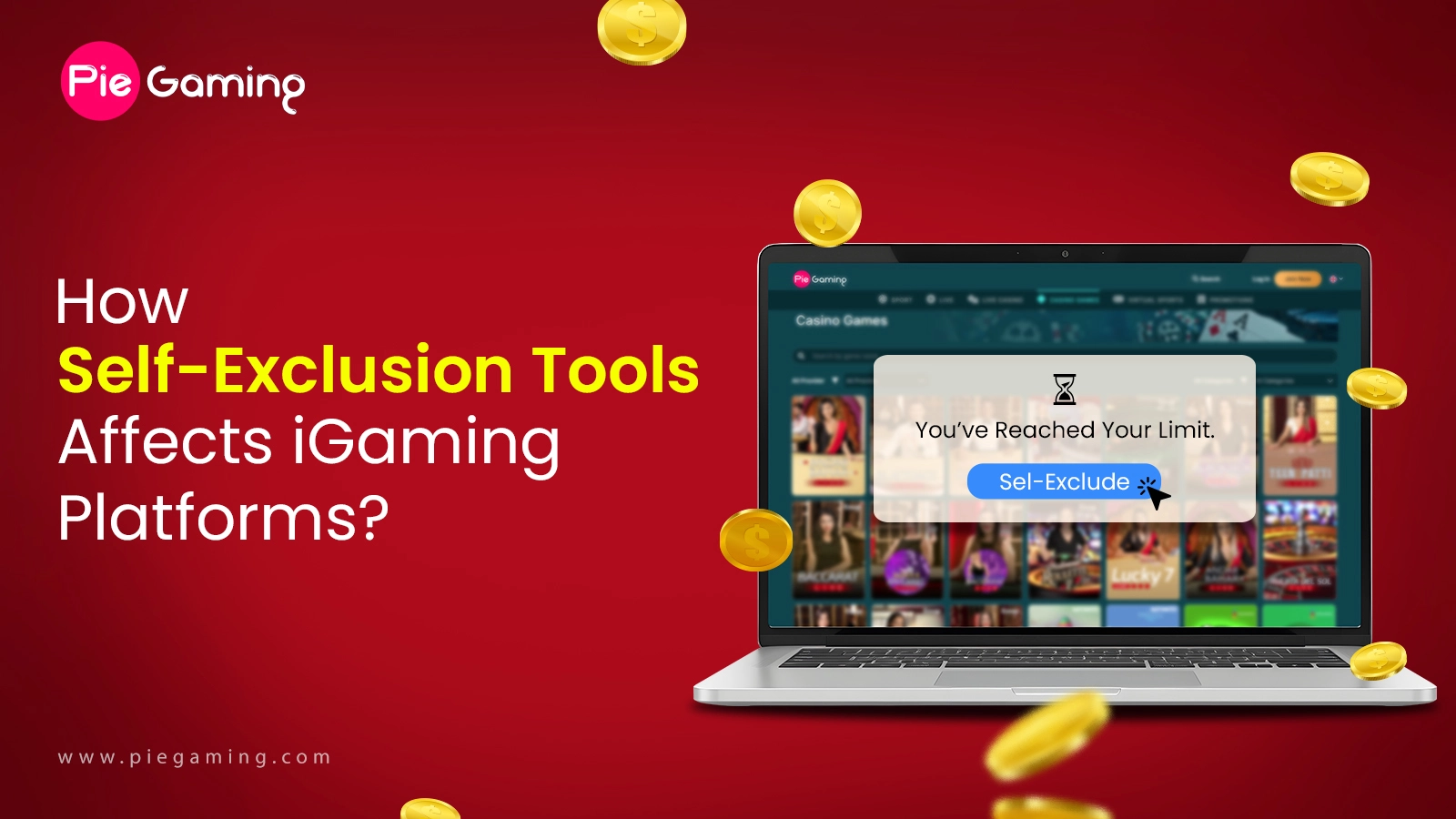 Palak Madan September 11, 2025
Palak Madan September 11, 2025Self-exclusion tools are changing how online casinos work. They help players control their gambling while protecting casino operators from legal problems, bad publicity,…
-
 Palak Madan August 28, 2025
Palak Madan August 28, 2025Learn how to get a Kahnawake iGaming license in 2026 with this step-by-step guide covering eligibility, application requirements, costs, and compliance for online…
-
 Monika Gola August 28, 2025
Monika Gola August 28, 2025Compare Malta vs Curacao iGaming license. Explore cost, application process, taxation, compliance to choose the right license for your business.
-
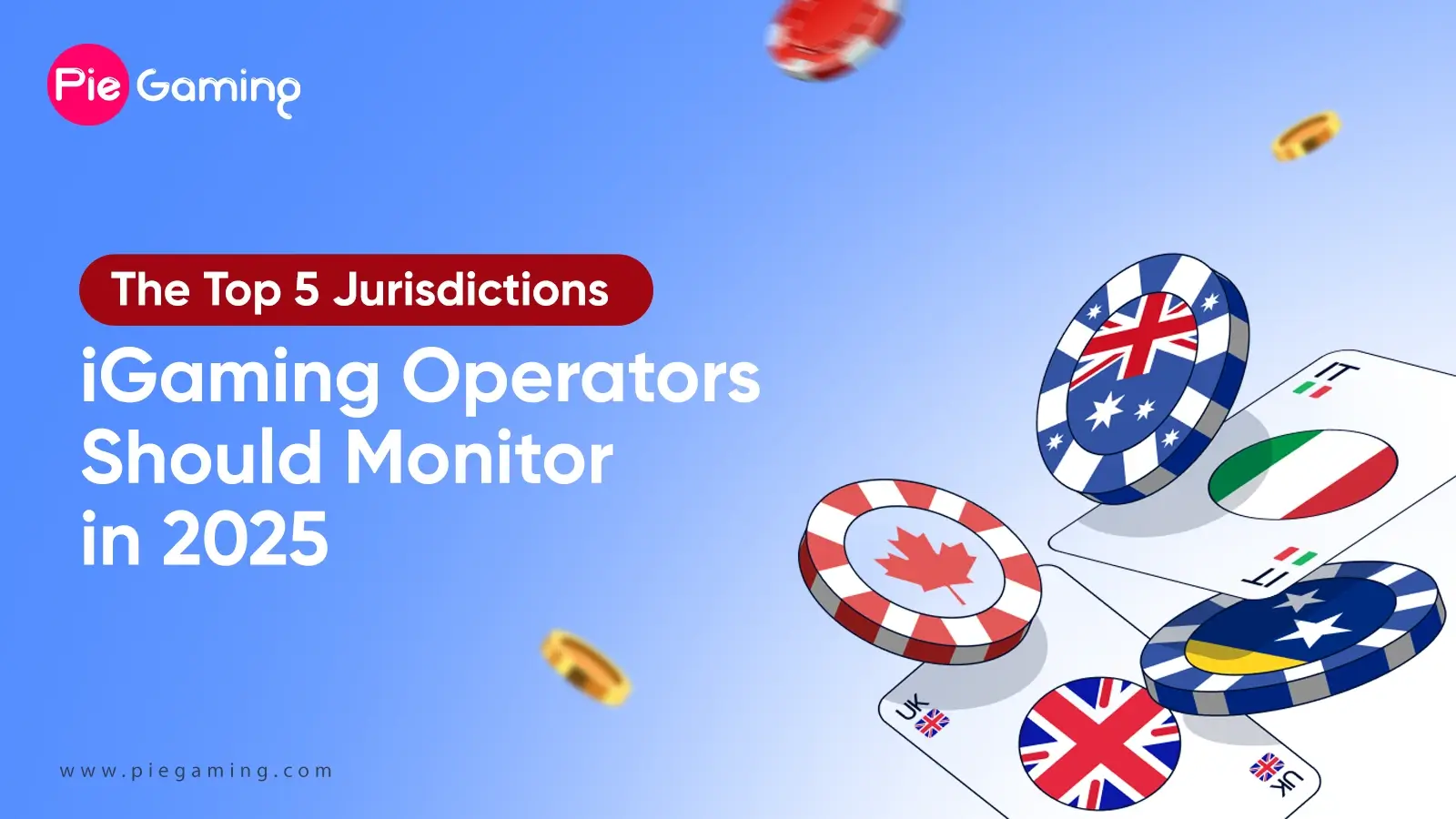 Palak Madan August 21, 2025
Palak Madan August 21, 2025Discover the top 5 iGaming markets to watch in 2026. Learn about their rules, growth potential, and why they matter for operators planning…
-
 Monika Gola August 20, 2025
Monika Gola August 20, 2025This blog explores ways and platforms to find and partner with top sports betting affiliates to grow the iGaming business. When Nicole launched…
-
 Palak Madan August 13, 2025
Palak Madan August 13, 2025Learn how iGaming affiliate marketing software helps operators boost revenue with real-time data, automation, fraud control, and flexible payouts.
-
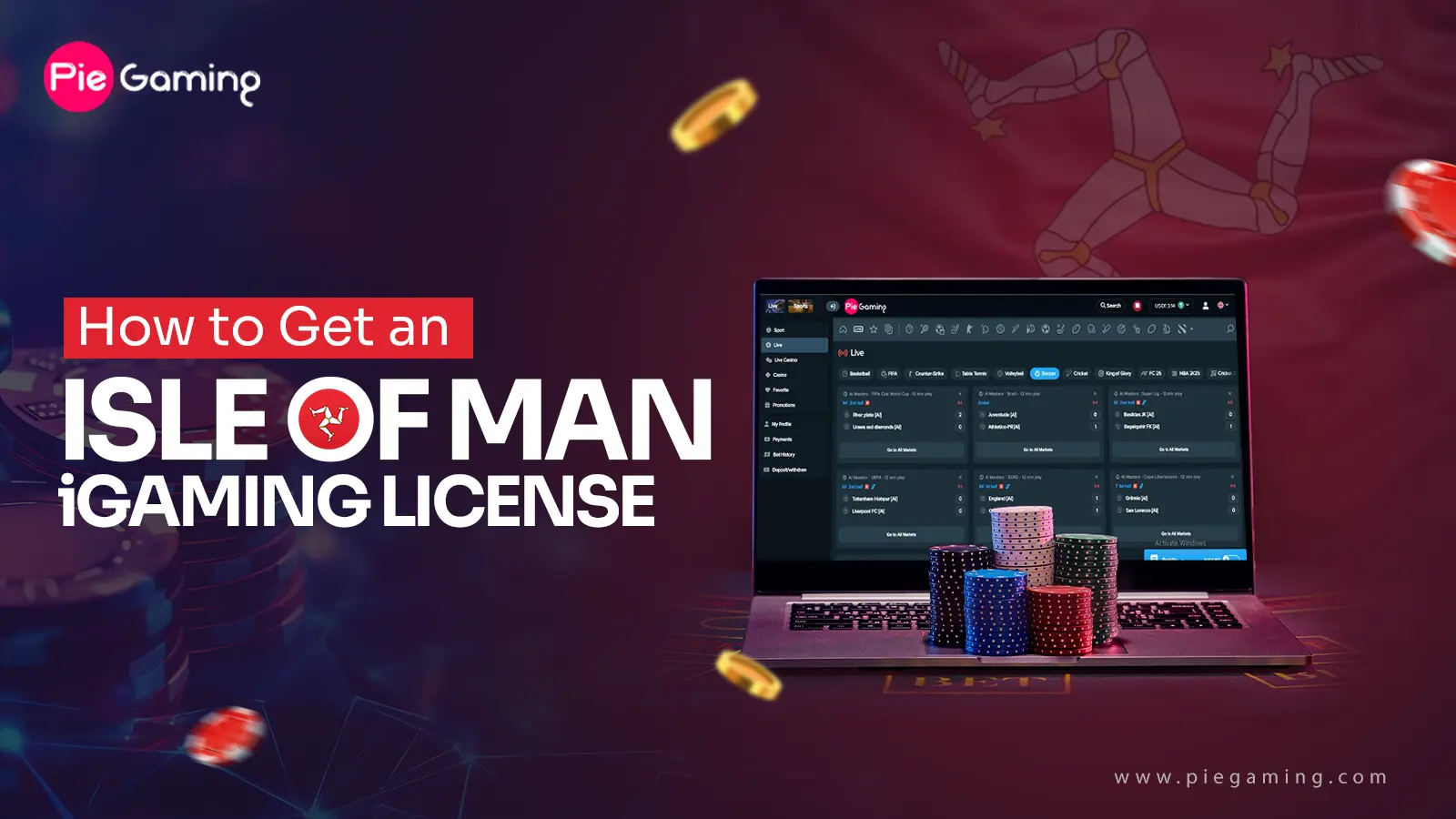 Palak Madan July 24, 2025
Palak Madan July 24, 2025Learn the step-by-step process to apply for an Isle of Man iGaming license, including requirements, costs, timelines, and key benefits for operators.
-
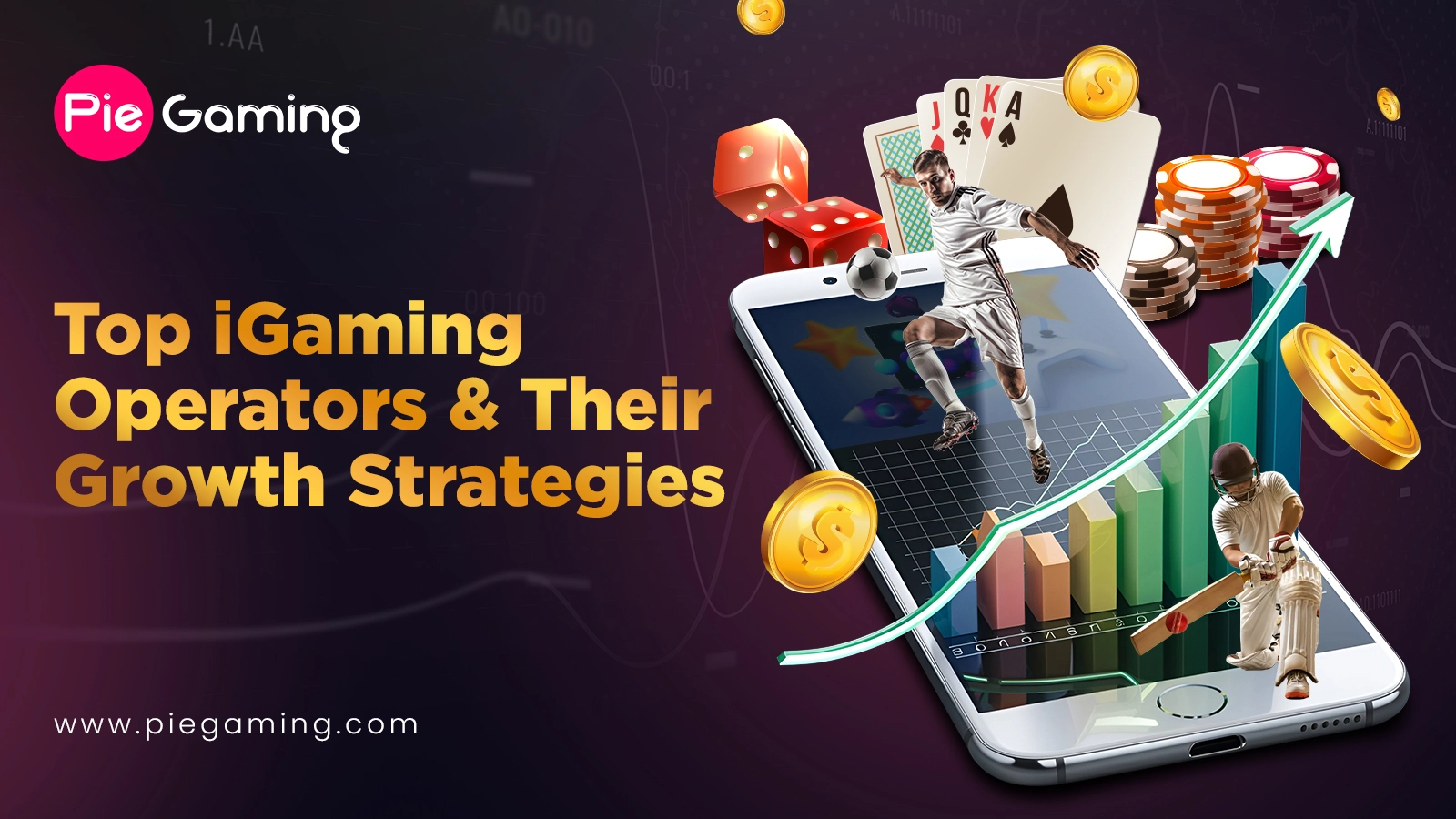 Monika Gola July 17, 2025
Monika Gola July 17, 2025Want to grow like the top iGaming operators in 2025? Learn the strategies behind industry leaders like DraftKings, Bet365, etc., to grow your platform.
-
 Monika Gola July 14, 2025
Monika Gola July 14, 2025This blog is a comprehensive guide on key success strategies for European iGaming Operators. Read on to build your iGaming empire in the…
-
 Monika Gola June 27, 2025
Monika Gola June 27, 2025If you have landed on this blog, that simply means you’re planning to enter among the most lucrative iGaming markets in the world…
-
 Monika Gola June 24, 2025
Monika Gola June 24, 2025In this blog, we will focus on the South Africa iGaming license, step-by-step process to obtain it, and much more. Read here to…
-
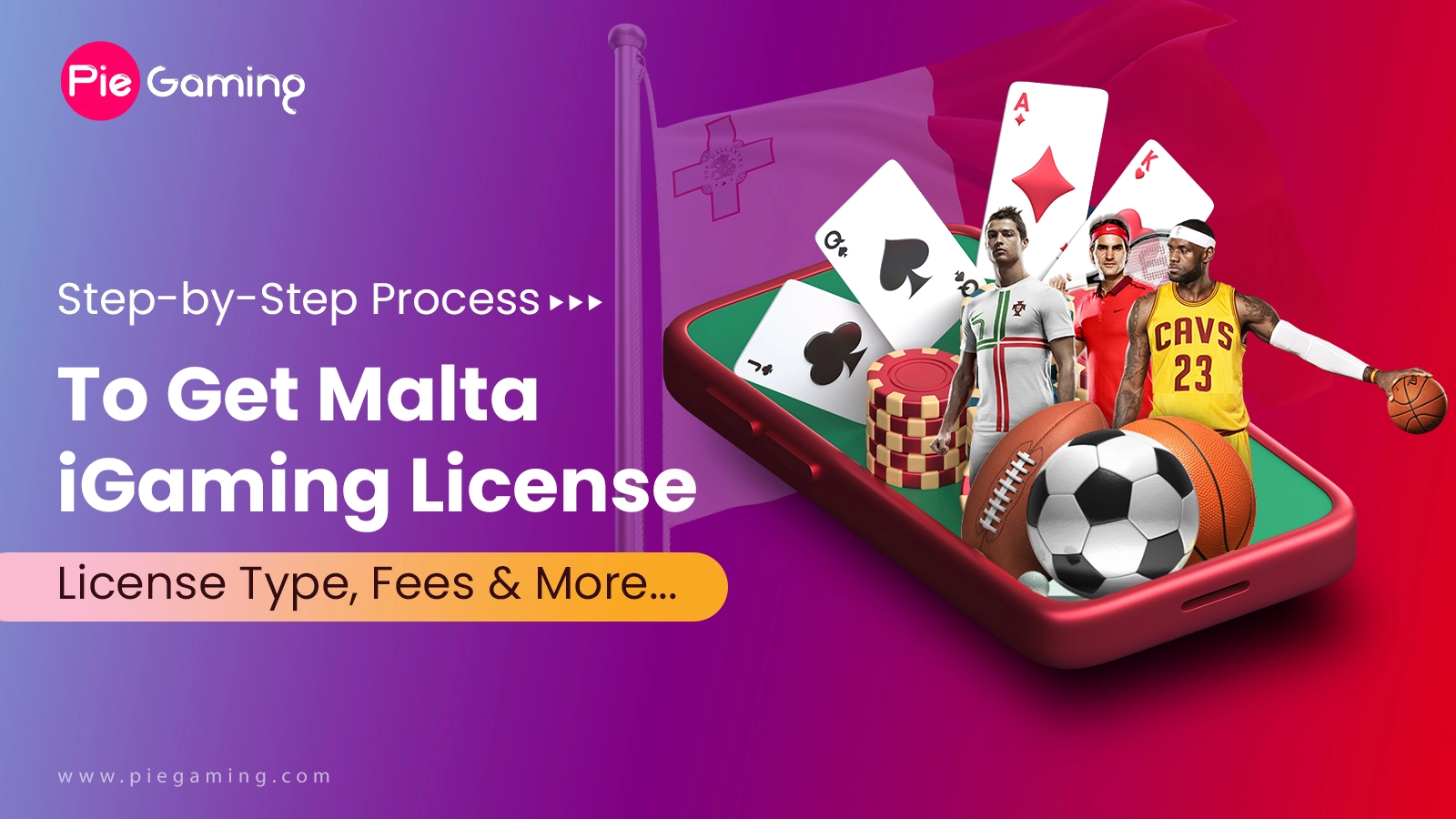 Monika Gola June 18, 2025
Monika Gola June 18, 2025Malta iGaming License is one of the most popular licenses among operators. But, obtaining it can be a challenge. This guide walks you…
-
 Monika Gola June 9, 2025
Monika Gola June 9, 2025The Curaçao iGaming License has been among the most preferred choices for online casino and sports betting operators. Take a closer look at…
-
 Monika Gola January 28, 2025
Monika Gola January 28, 2025Explore the best iGaming affiliate software providers. Compare platforms with features, pros & cons, and tracking models.
-
 Palak Madan January 17, 2025
Palak Madan January 17, 2025Provably Fair technology makes online gaming more trustworthy by letting players check game results for fairness, ensuring transparency, and building confidence in gaming…
-
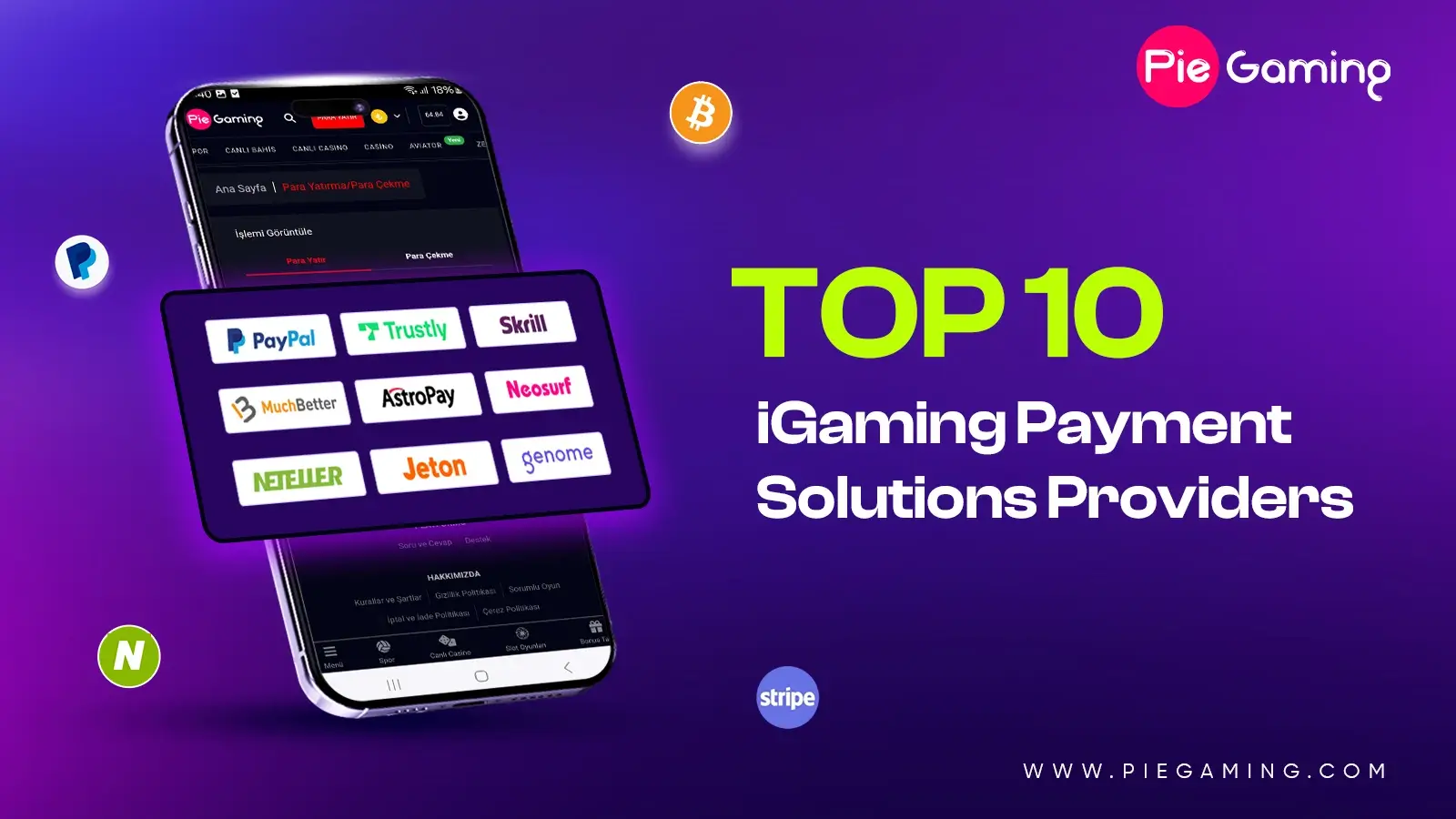 Monika Gola November 27, 2024
Monika Gola November 27, 2024This read talks about the leading iGaming Payment Solutions Providers to enhance players’ experience and ease out the transaction process globally. Excitement into…
-
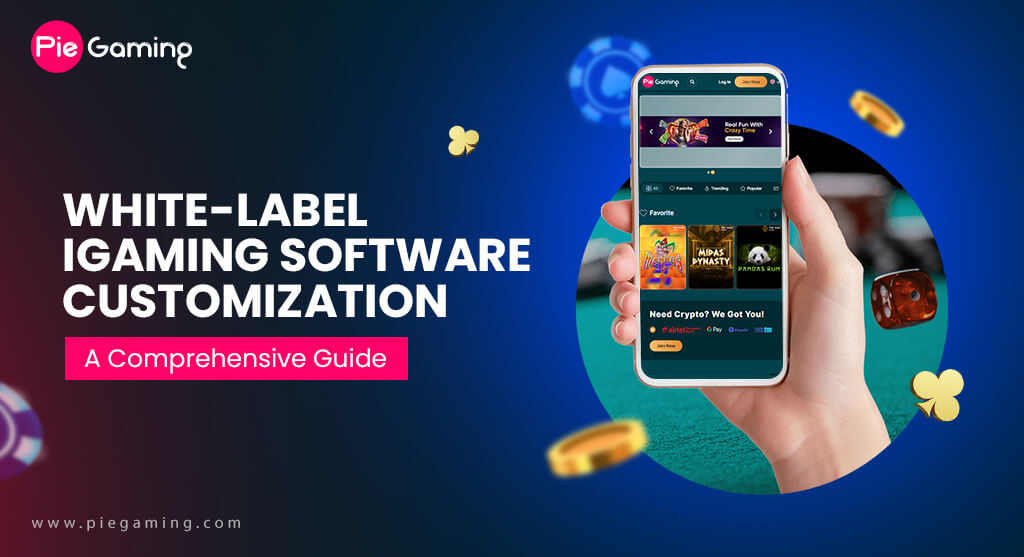 Simranjeet Kaur August 14, 2024
Simranjeet Kaur August 14, 2024White-label iGaming software provides a foundation for online betting platforms. But its true value lies in customization. These solutions offer a ready-made framework….
-
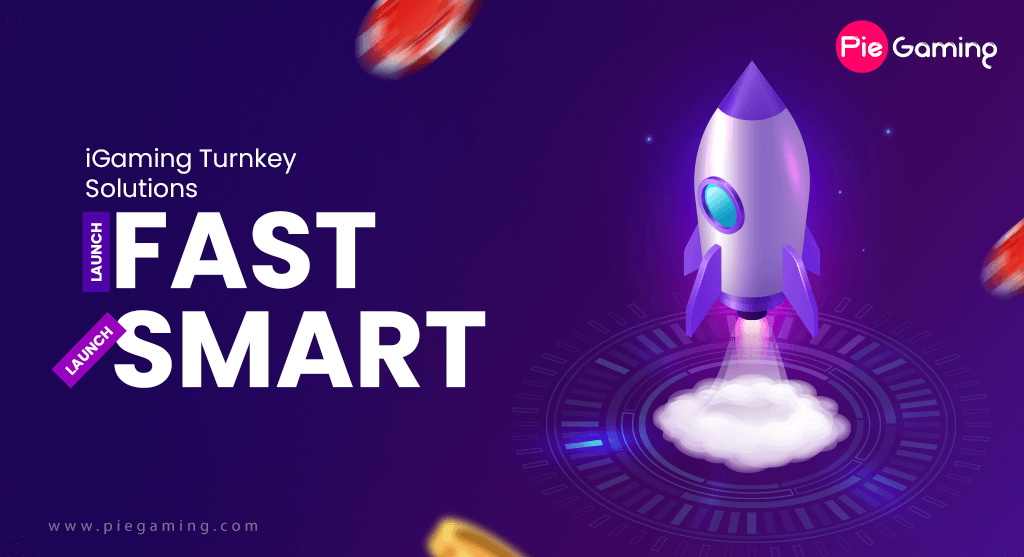 Simranjeet Kaur August 13, 2024
Simranjeet Kaur August 13, 2024The iGaming industry has grown a lot in the past decade. Now, it’s not just about tech experts or big casinos. With iGaming…
-
 Nikita Ajmani August 7, 2024
Nikita Ajmani August 7, 2024iGaming has become one of the most profitable industry in the world today. With a growing interest in gambling and more disposable income,…
-
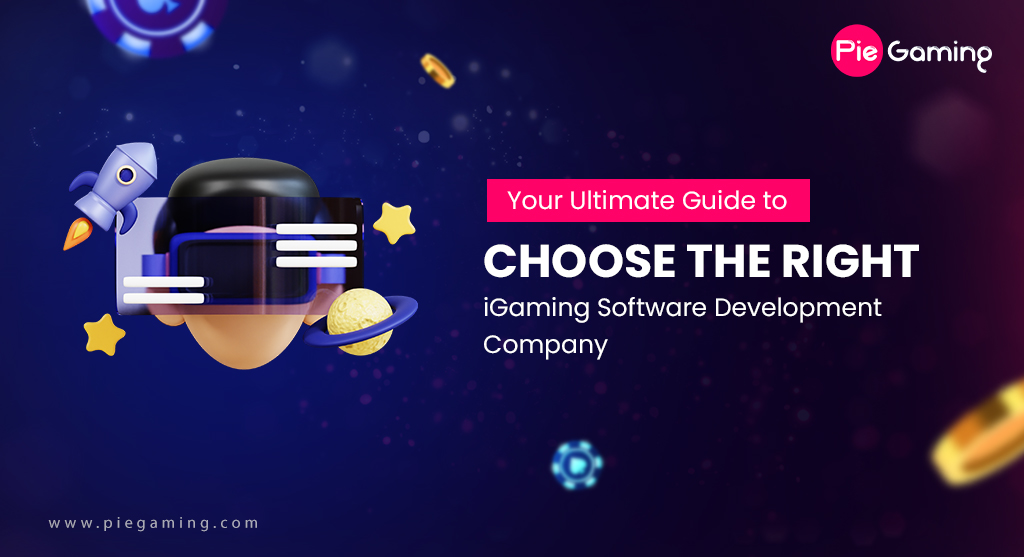 Nikita Ajmani July 24, 2024
Nikita Ajmani July 24, 2024This blog will explore the main factors to think about when choosing an iGaming software developer. It will also cover other important questions…
-
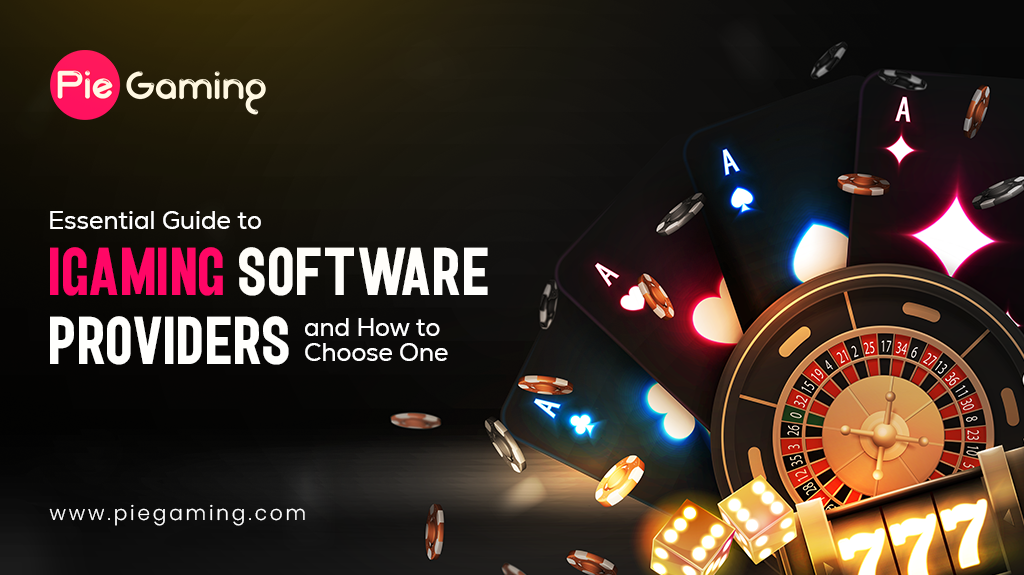 Simranjeet Kaur June 20, 2024
Simranjeet Kaur June 20, 2024Software providers in the iGaming industry play a very crucial role. We’ve prepared a guide on selecting the right one for your business. …
-
 Simranjeet Kaur June 18, 2024
Simranjeet Kaur June 18, 2024Imagine a world-famous casino, having millions of people visit it daily. Everything seems to be running smoothly until one day when a cyber…
-
 Palak Madan June 7, 2024
Palak Madan June 7, 2024White label iGaming Solutions offer ready-made, budget-friendly gambling websites. They come with AI tools, automation, and built-in legal compliance. They help you customize…
-
 PieGaming Staff February 13, 2024
PieGaming Staff February 13, 202411 Step-by-Step guide and market insights to start a solid Online Poker Game Business today and Create a strong player base for your new business.
-
 PieGaming Staff January 19, 2024
PieGaming Staff January 19, 2024The Software Development Life Cycle (SDLC) process is followed to develop and maintain software. In SDLC, how an iGaming software will function is determined.
-
 Palak Madan January 18, 2024
Palak Madan January 18, 2024Steps to find the right turnkey iGaming software provider for your iGaming business. One who can help your business achieve a thriving business within weeks.
-
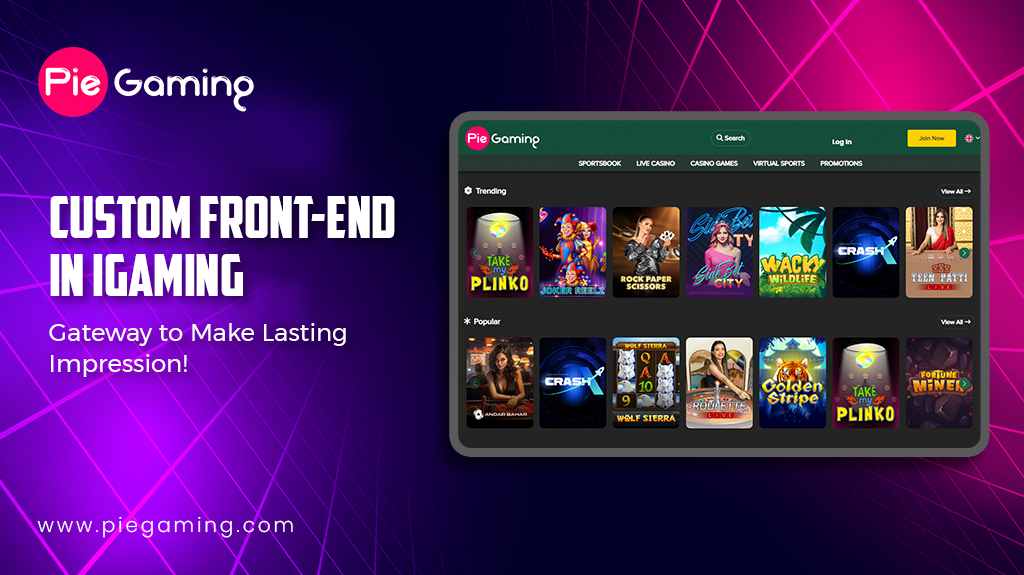 PieGaming Staff December 22, 2023
PieGaming Staff December 22, 2023Discover how the custom front end improves the user experience to aid player acquisition & retention. Read do’s & don’t’s of great visual front-end.
-
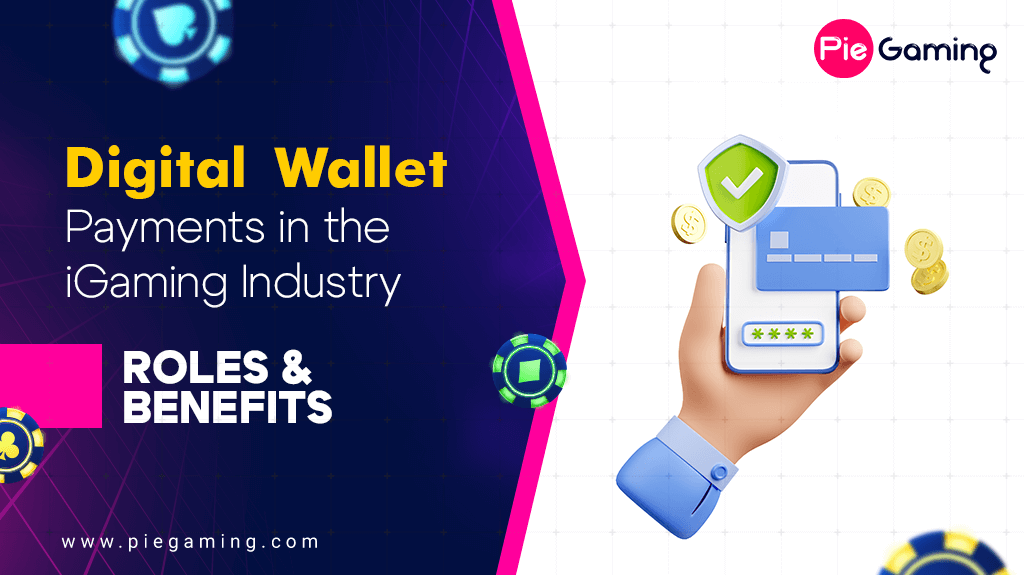 Piegaming Admin December 20, 2023
Piegaming Admin December 20, 2023Discover how digital wallet payments in iGaming help ensure speedy, safe, and accurate transactions. Know which types of digital wallets are worth adding.
-
 Monika Gola December 19, 2023
Monika Gola December 19, 2023To get an online gaming license, you need to establish a legal entity where you want to operate, followed by legal procedures. Read here.
-
 PieGaming Staff December 13, 2023
PieGaming Staff December 13, 2023Latin America is a brewing market for iGaming Industry. In this blog discover some lucrative trends, challenges and future opportunities Latin America holds.
-
 Monika Gola December 12, 2023
Monika Gola December 12, 2023Artificial Intelligence has truly transformed the gaming industry by enhancing gamеplay еxpеriеncеs, personalisation and predictive designing. Read for more.
-
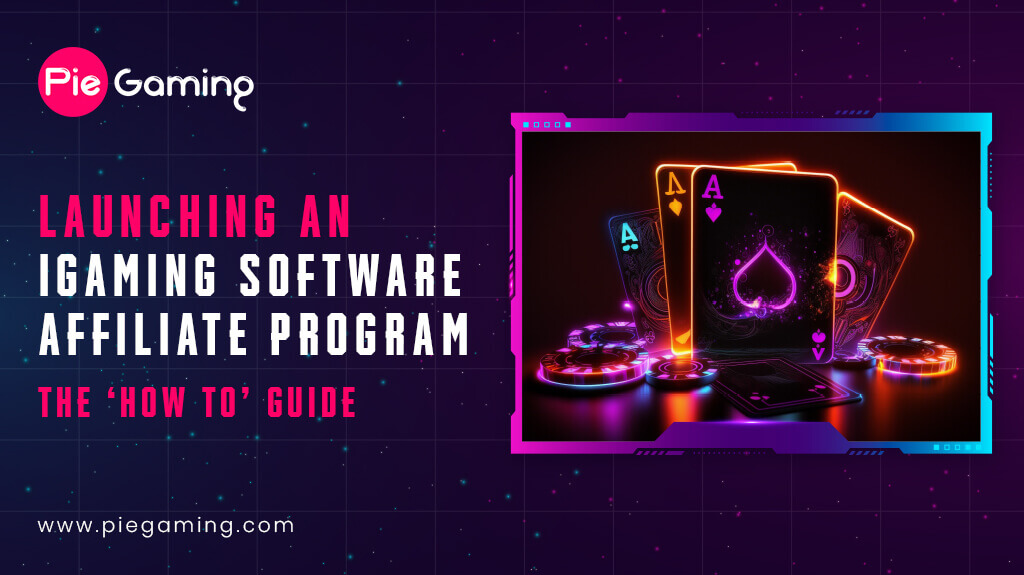 PieGaming Staff December 10, 2023
PieGaming Staff December 10, 2023If you understand the pulse of the iGaming industry, you already know how important it is to run affiliate marketing programs for your…
-
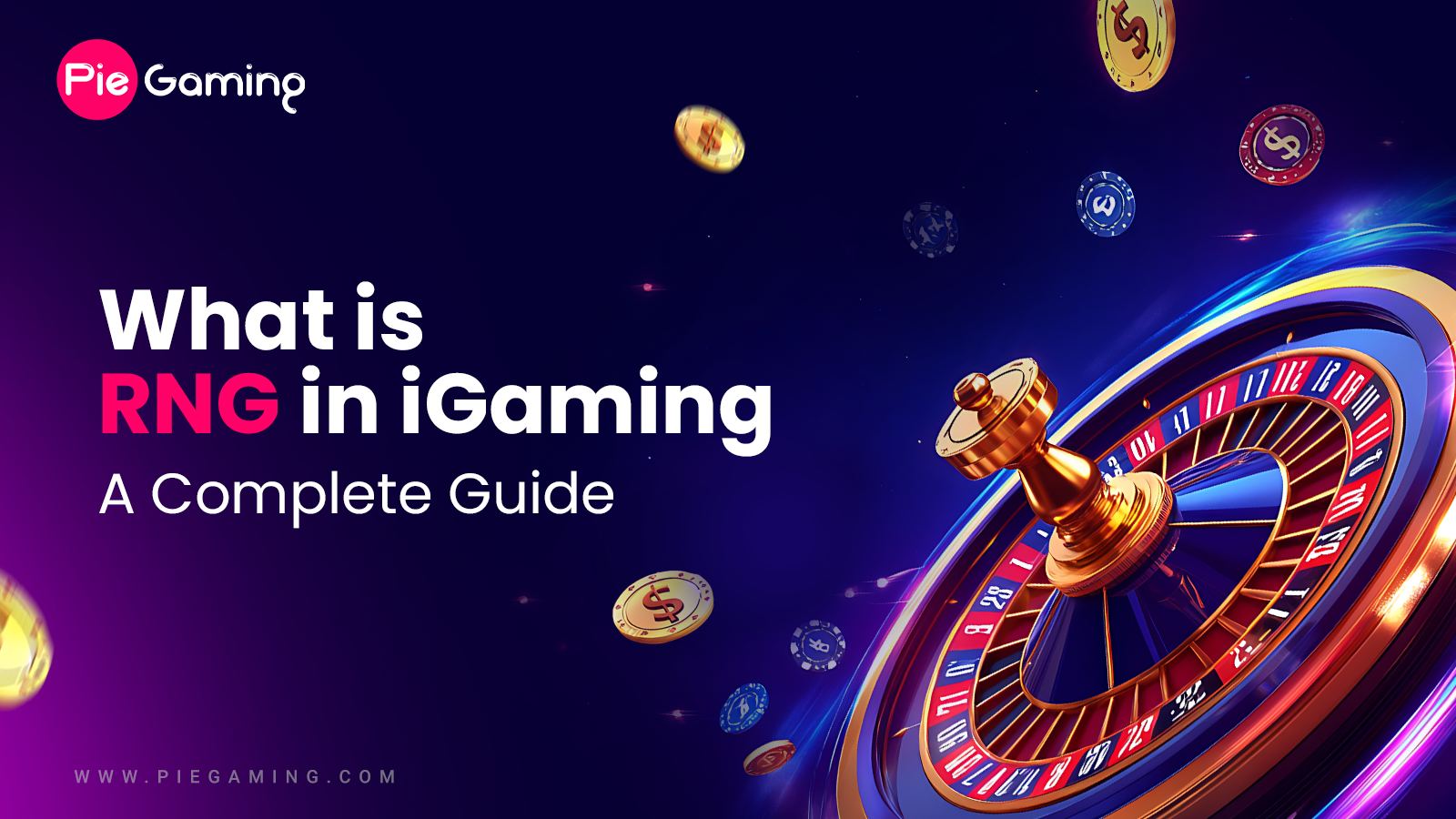 Palak Madan November 1, 2023
Palak Madan November 1, 2023RNG in iGaming is a software that creates random results in online casino games. It produces a new, unpredictable outcome each time a…
Voila!
See you in your inbox soon!

Stay ahead of the game. Subscribe for exclusive content, updates, and insiders!
We use cookies to enhance and personalize your browsing experience. By continuing to use our website, you agree to our Privacy Policy.



